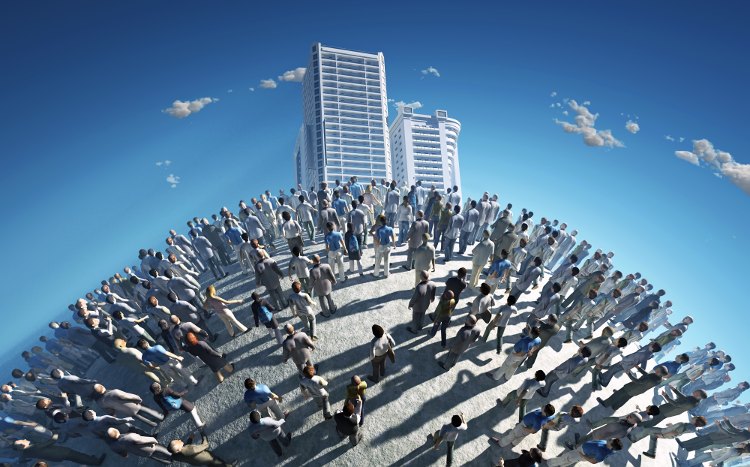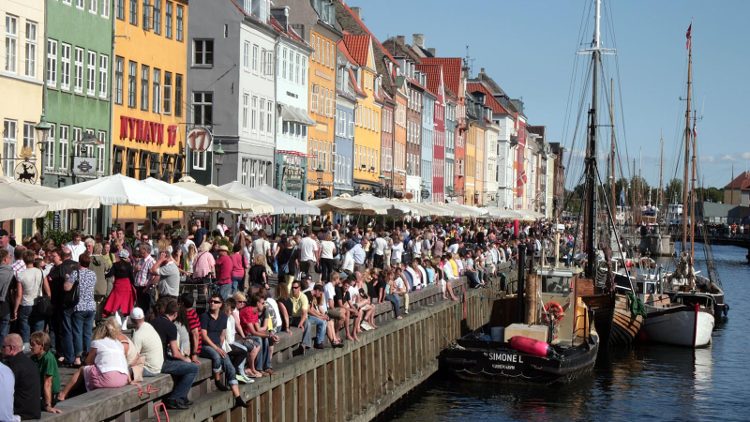Science headache with the question of how many people the Earth holds
While the population explosion is a major threat to the Earth, researchers still cannot agree on the number of people that the Earth can meet.

The Earth cannot expand.(Photo: Mike Kiev)
" The problem is not the number of people on Earth but due to the amount of consumers, their nature and scale of consumption ," BBC quoted David Satterthwaite, a senior member at the International Institute for Environment and Development developed in London, England.
10,000 years ago, there were only a few million people on Earth. In 1800, the Earth had one billion people. This number increased to 2 billion people in 1920. Currently, the world population is 7.3 billion people. According to the United Nations, the population could reach 9.7 billion by 2050 and 11 billion by 2100.

Copenhagen, Denmark, is considered to be a place of good quality of life but low emissions of greenhouse gases.(Photo: Ros Drinkwater)
Population growth is so fast that we can hardly predict the consequences. In other words, with the current level of human knowledge, we do not know whether the Earth can accommodate a population of 11 billion. However, we can predict the population will increase strongly in urban areas of low and middle income countries.
The impact of population growth on these urban areas is relatively small because they have low spending levels. CO2 emissions and greenhouse effects are also low. " Cities in low-income countries produce less than a ton of CO2 per capita per year. Meanwhile, this figure in high-income countries is up to 30 tons, " Satterthwaite said. Even many urban people have such low incomes that they almost emit no greenhouse gases.

Human society depends on production technology.(Photo: Thom Lang)
However, a population of 11 billion can cause natural resource stress on Earth. If low-income cities increase their consumption, the consequences will be much more serious. According to Professor Will Steffen of Australian National University, the problem here is that global consumption increases very quickly. This means that high-income people must limit spending and accept government support to contribute to reducing climate pressure, resources and waste globally.
Analysis of the researchers showed that households accounted for 60% of greenhouse gas emissions, using 80% of the Earth's land, resources and water. This consumption is concentrated on households in high income countries.
Even if the social structure changes, we still don't know whether the Earth can sustain a population of 11 billion. According to Steffen, we need to stabilize the global population , maintain at about 9 billion people and gradually reduce the birth rate. According to the Population Division of the United Nations, the actual birth rate has decreased since the 1960s. Reducing birth rates is a way to enhance women's status, as well as open up many educational opportunities and job.

A slum neighborhood in Mummnai, India.(Photo: Stuart Kelly)
Many people think that this 11 billion people are hard to achieve because it depends on many factors such as agricultural technology, electricity production and transportation. Poverty, malnutrition, climate change, biological crisis, ocean pollution also contribute to curbing the population growth process.
The amount of resources each user uses and the technology development also affects the maximum population on Earth. In the far future, if people can live outside the Earth, the human population will be much larger. However, in the short term, we need to change our lifestyle and improve women's living conditions around the world. Only by doing so can we estimate the maximum number of people that the Earth can meet.
- Headache - symptoms of many causes
- Good foods for people or headaches
- Eat 'standard' to dispel headaches
- Headache when you need a CT scan, MRI?
- 10 most curious mystery questions
- 9 common headaches and treatment
- Science has confused about the origin of water on Earth?
- Don't be subjective with headaches when the weather changes
- Women do science - difficulties forever
- Why is drinking wine a headache?
- Tips to cure a headache after only 10 seconds
- 7 ways to prevent headaches without taking medicine
 Is the magnetic North Pole shift dangerous to humanity?
Is the magnetic North Pole shift dangerous to humanity? Washington legalizes the recycling of human bodies into fertilizer
Washington legalizes the recycling of human bodies into fertilizer Lightning stone - the mysterious guest
Lightning stone - the mysterious guest Stunned by the mysterious sunset, strange appearance
Stunned by the mysterious sunset, strange appearance